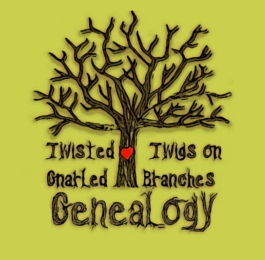Why do you research family history? Is there a specific relative you’re trying to learn more about? Are you researching a specific family line? Are you going backwards as far as you can go? Or are you going from one ancestor forward to all living descendants? Basically, what are you researching?
Often heard in genealogy forums and groups is the mantra “this is all for fun.” It’s true; genealogy is fun. Baseball is fun. Tag is fun. Monopoly is fun………. All have an end to the game, however. What end we are working towards in genealogy isn’t the same for every person. Personally, my family lines are well fleshed out for the most part. Almost all are American Colonial, so I’m not going to make any huge breakthroughs on immigrant ancestors that are already well documented. I have one recent immigrant, so my goal there is to learn more about her family overseas and reach out to living people. Generally speaking, my hope is to gather reliable data for future genealogists on known lines that introduce new paths of research. I’m not going for the biggest tree with the most people. I honestly think that’s too grand a goal; there’s no way to reliably research each person to reasonably trust that the facts are correct and have a massive tree. The bigger the tree, the more likely you’re relying on someone else’s research to get the names.
It’s not that I don’t use other people’s data. Compiled genealogies done by other family members are useful if the data is accurate (always check their resources!). There are several compiled genealogies on my colonial lines, so really I’m just looking for copies of the documents cited and bringing the lines further along past the publication date of the work. Some of those relatives are well researched and I could hunt in dusty libraries all my life and never do a better job on them. Other family………. Well, they aren’t so fleshed out. Women especially. My goal is to give women their maiden names back. To make them more than a “Mrs.” wherever possible. Another portion oft left undone is far flung branches of family. The historian of the day loses contact with a cousin and there’s barely enough for a name notation in a relationship chart. Where did they go? What did they do? That’s where you’ll find me trying to find them.
Honestly, I’ve never been big on the full story of every ancestor. My direct lines, I want their photos, stories, locks of hair, every record since day 1, and perhaps even a séance to ask a few lingering questions. But others? Mer. Some people have a personal vault of information on their relatives. Their trees are small, but they can give you every exacting detail available on any relative they’ve researched. In some ways I’m very jealous of their dedication to detail. Like the tortoise, they use slow and steady research to build strong roots built on hard data. Their trees stand the test of time as other researchers can find no errors or missing information. These people have combed the internet, searched the archives, braved the graves, and hassled the relatives until they felt they had exhausted all avenues of research. Unlike the large tree hares, they haven’t sprinted past any possible avenue without fully exploring the alternative data that may point in a different direction. Does that make their approach better?
Well…. There is no “better” way to research, really. Remember, we don’t all have the same end goal in mind. On the other hand, I find those slow and steady folk are happier with their work. The tree has fewer errors and duplicate profiles are near zero. I don’t know if it’s because they know each dead relative as well as they know their living ones or if it’s because they have a sense of completion with each profile. I do know that some part of the fun of genealogy is knowing where the “finish” line is………… even if we end up moving it tomorrow. So where are you going?
~Ana

